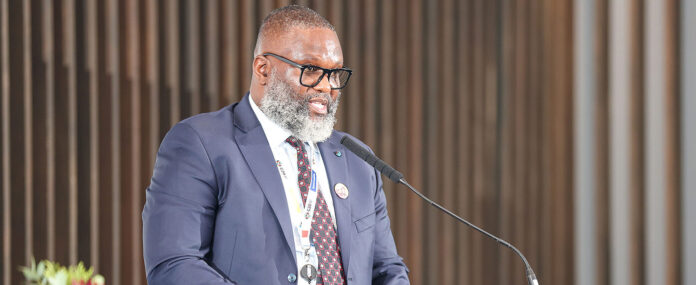South Africa’s public service is set for sweeping reforms in the coming year, with a focus on digital transformation, professionalisation, and enhanced oversight, Minister for the Public Service and Administration, Inkosi Mzamo Buthelezi, announced during his budget vote speech at the Good Hope Chambers on Wednesday.
Tabling the budgets for the Public Service and Administration, the National School of Government, and the Public Service Commission, Buthelezi emphasised continuity, stability, and a renewed drive for accountability under the government of national unity.
“The transition to the seventh administration has been smooth across the public service despite initial concerns about potential instability,” Buthelezi said.
“Our dedicated public servants have effectively navigated the political complexities, ensuring that governance and service delivery remain on course. I applaud each public servant for prioritising the interests of South Africans.”
A central theme of the minister’s speech was the “comprehensive digital transformation roadmap” being developed to improve government efficiency and citizen access.
“Modernising public service delivery through digitalisation is a vital component of our strategy,” Buthelezi revealed.
“We are collaborating with key stakeholders to streamline access to government services and rolling out a data management programme to foster evidence-based policy development and enhance ICT governance.”
Buthelezi highlighted the government’s push to professionalise the public service, citing the implementation of the Professionalisation Framework and the successful tabling of the Public Service Amendment Bill.
“We are fully engaged in implementing the Professionalisation Framework, which is vital for developing professionalism beyond political terms – building public trust and enhancing service delivery,” he said.
Protection of whistleblowers
He pointed to new merit-based recruitment processes, mandatory training such as the Nyukela Course for advisors and support staff, and ongoing skills audits.
“Notably, we mandated that special advisors and support staff complete the Nyukela Course and competency assessments, ensuring that executive authorities receive quality advice and support,” Buthelezi explained.
He also announced further steps to protect whistleblowers.
“We have also taken decisive steps to protect whistleblowers through our approved guide for witness protection, ensuring that those who report corruption can do so without fear.”
In a major policy development, Buthelezi highlighted the recent passage of the Public Service Commission (PSC) Bill, calling it a “significant milestone in our commitment to strengthening the role of the commission”.
The bill provides for an independent secretariat for the commission and gives greater force to its recommendations.
“This measure is key as we collectively build a capable, ethical, and developmental state where accountability is the standard for all of us.”
He pledged stricter, merit-based appointment procedures for key government positions, echoing President Cyril Ramaphosa’s call for integrity and competence in his February State of the Nation Address.
“South Africans want a state that treats all people with dignity, humility, and respect. A state with leaders who are prepared to serve our people with complete dedication and public servants who are ethical, skilled, and properly qualified,” Buthelezi quoted.
Collaborations with global partners
He warned that the expansion of the PSC’s mandate to include local government and public entities would require additional resources.
“Strengthening the PSC also requires ensuring its financial independence. The commission must be adequately funded to fully discharge its constitutional mandate without fear, favour, or prejudice,” he said, noting the constraints of the current budget.
However, he pointed to new collaborations with international partners, including the United Nations Development Programme, the World Bank, the German Agency for International Cooperation, and the Chandler Institute of Governance in Singapore.
“We have since actively forged strategic partnerships, which are already yielding positive results. And will continue to enhance our efforts during the Medium-Term Development Plan 2024-2029,” Buthelezi said.
With the implementation of new oversight mechanisms, a revitalised focus on ethics and digital innovation, and a clear directive for a professional, citizen-focused public service, Buthelezi concluded: “Our collective efforts are dedicated to rebuilding public trust through a renewed and purpose-driven public service that truly works for all.”
He urged parliament and the public to hold the administration accountable as it delivers on its promise of a more capable, ethical, and responsive state.



